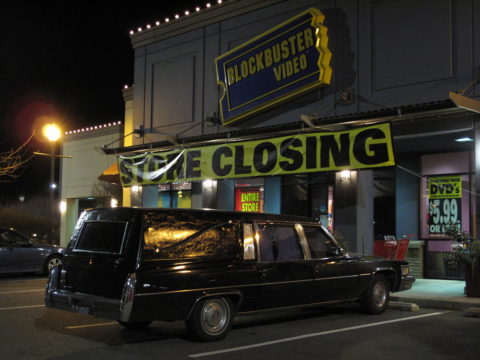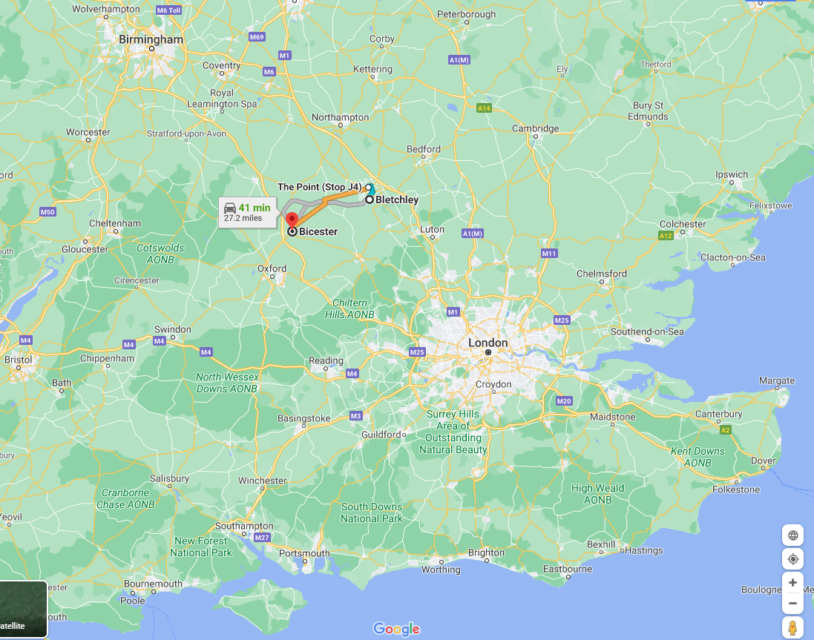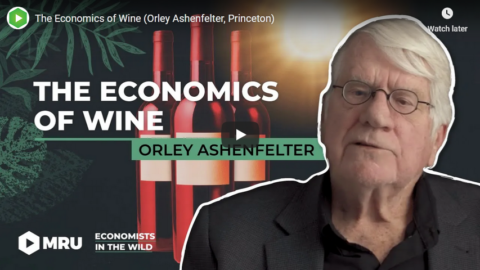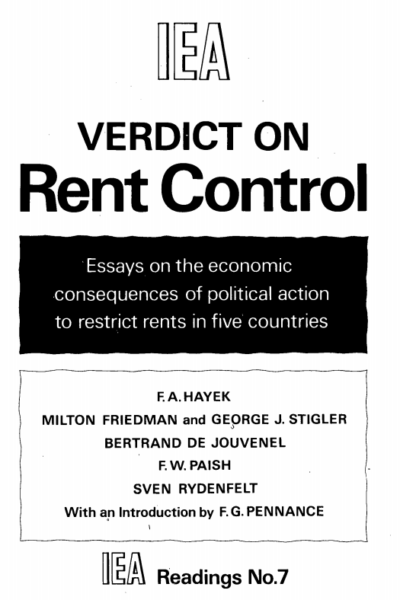Here are the main points of the Bank of Canada’s lessons in free trade. It starts off with a bang. “Trade is dominating the news these days. With the barrage of headlines and the talk about protectionism and tariffs, it’s easy to forget that much of our economic growth and prosperity comes from international trade.”
Below are the lessons, taken almost entirely verbatim from the bank’s online lesson (except where I’ve provided a bit of additional description). It’s a terrific lesson and all within a mere 1,400 words and a short video.
Lesson 1: All parties reap the rewards of free trade.
Specialization means focusing on what each country produces most efficiently and trading for the rest. And because specialization is more efficient, it creates more wealth than if each country tried to do it all on its own. International trade is no different from domestic specialization and internal trade — few of us grow our own food or do our own dry cleaning. Instead, we specialize and trade. The lesson includes a short cartoon video featuring “Mark and Lucy” — aimed at kids but worth a presidential view — that explains the concepts of comparative advantage and opportunity costs.
Lesson 2: Trade protectionism makes everyone worse off.
While freer trade — in both exports and imports — makes us better off, the opposite is also true. Barriers to free trade, such as tariffs, have a negative impact on our economic well being.
Lesson 3: The pie isn’t divided equally.
Freer trade has raised incomes across the global economy, but it has not benefited everyone. Countries engaged in free trade are better off overall, but some sectors and communities within countries have suffered. Governments have used policies such as ongoing learning and retraining programs to help affected workers adjust. This a better approach than shrinking the pie through trade protection. That would be worse for everyone.
Lesson 4: Trade deficits and surpluses are not a scorecard.
It’s important to debunk the myth that cheap imports are the cause of all the pain and that a trade deficit with another country is a bad thing. Looking at trade balances between a country and its trade partners, we should expect to see surpluses with some and deficits with others. This is specialization in action.
Terence Corcoran, “Amazing! Canada has one government department that actually comprehends free trade!”, Financial Post, 2018-10-04.
April 12, 2021
QotD: Four lessons on free trade
March 6, 2021
QotD: Why “the rich” benefit more from tax cuts
It might be worth our giving a little explanation to The Guardian about how tax systems work. We impose taxes upon certain things. Activities, transactions, even at times unsuccessfully upon mere existence as with the poll tax. These taxes are then paid by those who indulge in such activities, perform such transactions, have the temerity to exist. If we then decide to cut the tax rate or level on an activity, type of transaction or mode of existence then it will be those who formerly paid the tax on such who benefit from the tax cut on such. This shouldn’t be all that difficult for people to understand but we do seem to have an entire newspaper devoted to not grasping the point […]
There is that objectionable idea that not taxing something is a giveaway. The root presumption there is that everything belongs to the State and we’re lucky it allows us to keep anything to deploy as we desire and not as those who stay awake in committee do. This is not an assumption that leads to a free country nor populace, nor a liberal society.
But it’s also to miss that logical point, that if income tax is to be reduced then it must be those currently paying income tax who benefit from not doing so in the future under the new rates. […] The low paid cough up hardly anything in income tax. Therefore the low paid gain hardly anything from income tax being reduced. This should be obvious.
Tim Worstall, “Budget Revelation – Those Who Pay Income Tax Benefit From Income Tax Cuts”, Continental Telegraph, 2018-10-30.
February 16, 2021
Reduce, re-use, recycle … reject
John Miltimore rounds up several recent stories about American cities backing away from their elaborate, expensive, and wasteful recycling programs. We’ve had three generations of kids brought up indoctrinated into the belief that recycling was not only a good idea, but that it had almost mystical qualities and that it was essential to “saving the world”. The economic facts strongly contradict that, and have always revealed the inefficiencies and outright waste produced by even the best-run municipal recycling programs.
China, perhaps the largest buyer of US recyclables, stopped accepting them in 2018. Other countries, such as Thailand and India, have increased imports, but not in sufficient tonnage to alleviate the mounting costs cities are facing.
“We are in a crisis moment in the recycling movement right now,” Fiona Ma, the treasurer of California, told the Times.
Cost is the key word. Like any activity or service, recycling is an economic activity. The dirty little secret is that the benefits of recycling have been dubious for some time.
“Recycling has been dysfunctional for a long time,” Mitch Hedlund, executive director of Recycle Across America, told The Times.
[…]
And then there are the energy and resources that go into recycling. How much water do Americans spend annually rinsing items that end up in a landfill? How much fuel is spent deploying fleets of barges and trucks across highways and oceans, carrying tons of garbage to be processed at facilities that belch their own emissions?
The data on this front is thin, and results on the environmental effectiveness of recycling vary based on the material being recycled. Yet all of this presumes the recyclables are not being cleaned and shipped only to be buried in a landfill, like so much of it is today. This, Mises would say, is planned chaos, the inevitable result of central planners making decisions instead of consumers through free markets.
Most market economists, Reed points out, “by nature, philosophy, and experience” a bunch skeptical of centrally planned schemes that supplant choice, were wise to the dynamics of recycling from the beginning.
In a 2004 episode of Penn & Teller’s Bullshit, they discussed recycling:
February 11, 2021
Tom Brady’s Super Bowl success has outlasted many titans of corporate America
Despite the headline, this isn’t really about the NFL, Tom Brady or the S*per B*wl, it’s about a key factor in free market economies: creative destruction.

“Blockbuster store closing sale” by Consumerist Dot Com is licensed under CC BY 2.0
Consider some of the names that bought Super Bowl airtime during Brady’s first rodeo in January 2002: AOL, Blockbuster, Radio Shack, Circuit City, CompUSA, Sears, Yahoo, VoiceStream Wireless, and Gateway Computers.
The Titans of Yesterday
Notice a theme? That list features some companies we saw in Captain Marvel, the 2019 hit movie that nailed 90s nostalgia and reminded us how fast the world had changed. Like when Blockbuster Video stores were still a thing.
For those who may not recall, when Brady was winning his first Super Bowl, Blockbuster was approaching its peak. In 2004, it operated 9,094 stores and employed some 84,300 people. The company was pulling in $6 billion in revenue annually and looked invincible. Today, a single Blockbuster store remains open — in the world.
Remember RadioShack? Once upon a time, it seemed as if you could find one of their brick-and-mortar stores in every corner of the USA. Not anymore. In 2015, RadioShack filed for Chapter 11 bankruptcy, in large part because of those many store locations, which cannibalized revenues.
Sears, one of the historic giants of retail, managed to make it to 2018 before announcing its bankruptcy. Its stores continue to close so fast, it’s hard to tell how many remain in operation. (The best guess is about 60.)
It’s sometimes difficult to remember that the titans of industry aren’t always the same companies from year to year, and the sector-dominating company today might well be begging for a bailout (or demanding protection from uppity new competitors) only a few years down the way.
Some might see the collapse of Blockbuster, Sears and company as a sign of something terribly wrong with our economic system. After all, Blockbuster alone paid rent at tens of thousands of properties and employed tens of thousands of workers. Sears was the largest American retailer (by far) for decades.
Watching the companies we once shopped at flounder and fail can be surprising, jarring even. But a closer look shows this cycle is not unusual and is actually the sign of a healthy market economy, not a dysfunctional one. What may seem like pure destruction actually clears the way for economic innovation and renewal. “Creative destruction” is how the economist Joseph Schumpeter (1880-1950) characterized business failure in a free market.
As economist Mark Perry points out, companies on top have a very hard time staying on top. Perry, a scholar at the American Enterprise institute and a professor of economics at the University of Michigan’s Flint campus, compared the 1955 Fortune 500 companies to the 2019 Fortune 500. He found that just 52 were still on the list six decades later.
I spent most of my working career in the software business, and many of the companies I’ve worked for over the years aren’t in business any more (my first job out of school was with Northern Telecom … remember them?). Software is a particularly fast-cycling industry, but it’s true of the economy as a whole at a slightly more sedate pace.
January 28, 2021
Japan’s Big Asian Gamble – WW2 Special
World War Two
Published 27 Jan 2021Access to scarce natural resources and labor was a big reason for the Japanese to invade numerous South-East asian countries. But was that necessary? And did the benefits outweigh the risk? Let’s find out!
Join us on Patreon: https://www.patreon.com/TimeGhostHistory
Hosted by: Indy Neidell
Written by: Joram Appel
Director: Astrid Deinhard
Producers: Astrid Deinhard and Spartacus Olsson
Executive Producers: Astrid Deinhard, Indy Neidell, Spartacus Olsson, Bodo Rittenauer
Creative Producer: Maria Kyhle
Post-Production Director: Wieke Kapteijns
Research by: Joram Appel
Image Research by: Michał Zbojna
Edited by: Michał Zbojna
Sound design: Marek KamińskiColorizations:
Julius Jääskeläinen – https://www.facebook.com/JJcolorization/Icons from The Noun Project:
asia by Ted Grajeda
clothing by Adnen Kadri
Coal by Eucalyp
Wire by Arthur Shlain
noun_Wool_2842881
noun_rock_12609
noun_rock_481051
noun_hemp_2183488
Iron Ingot by Jetro Cabau Quirós
rock by Bakunetsu Kaito
Medicine by Ladalle CS
noun_rock_481016
noun_silk_3492403
noun_Oil_3319962
Paper by Sergey Demushkin
rock by Aline Escobar
tire by Juan León
soap by Roman
noun_Wood_2177037
noun_Metal_3369307
rock by Bakunetsu Kaito
noun_Mineral_3517065Soundtracks from Epidemic Sound:
“Sights of the Tokyo Tower” – Sight of Wonders
“Paths of a Samurai” – Mandala Dreams
“Pacific Shores” – Mandala Dreams
“Sights of the Tokyo Tower” – Sight of Wonders
“Save Her” – Jon BjorkSources:
Archive by Screenocean/Reuters https://www.screenocean.com.
A TimeGhost chronological documentary produced by OnLion Entertainment GmbH.
From the comments:
World War Two
4 hours ago
Japan wasn’t the only nation that went to war over Asia’s natural resources. Indonesia was a big source of wealth for the Dutch ever since it became a colony, so The Netherlands went to war after World War Two, when the Indonesians declared their independence. We have made a whole series about the Indonesian War of Independence, including a prologue covering the colonial context (including WW2 occupation) of Indonesia. You can watch that prologue right here: https://youtu.be/IkKJSRaeOik
January 26, 2021
£760m to connect Bicester and Bletchley? That’s … very spendy
At the Continental Telegraph, Tim Worstall looks at the economic case for building the East-West railway line — in “reverse Beeching” style — to connect Oxford and Cambridge:
The cash from the Department of Transport will be used to lay track along a disused railway line between Bicester and Bletchley, in Buckinghamshire, with services beginning in 2025.
Excuse me? £760m to link Bicester and Bletchley? Other than the fact that that is £50m/mile, which should be the cost of rail lines made from crushed Faberge eggs and unicorn hair, how many people want to travel between Bicester and Bletchley by train? That’s roughly £10K/person in those small towns. OK,that then extends to Oxford, but that allows around 30,000 more people to go by train to Oxford. Which is not a particularly busy commuter metropolis anyway.
The aim is to complete the whole project by the end of the decade, according to the government minister overseeing it.
2 miles per year? Are they going to use canals and horses like Brunel?
[…]
Elsewhere, the new railway will shorten journey times between routes outside of London. Travellers from Oxford for example, will no longer have take a train into the capital and back out again to reach Milton Keynes, but could travel there via Bicester.
Again, what’s the demand for this? How many people want to do this, and would it be cheaper to just hire some chauffeurs to drive each passenger in a Ferrari from Bicester to where they want in Milton Keynes? I doubt it will be any quicker than a car because this only gets you to Bletchley, and then you have to get off a train to get to Milton Keynes, and then get where you want in Milton Keynes.
This used to be an active railway corridor before the Beeching cuts in the 1960s, which slashed a lot of uneconomic branch lines from British Rail’s network. If the land wasn’t sold off, then it’s just a matter of re-laying the track and ensuring that any existing bridges, embankments and drainage culverts are still capable of handling the renewed rail traffic. It seems unlikely that the mere engineering aspects of the project would require several hundred million pounds to complete, so perhaps there are some land issues that need to be re-acquired to allow the railway to become active again.
January 19, 2021
Milton Friedman’s “Shareholder Doctrine” is alive and well
Satish Bapanapalli on why Friedman’s doctrine helps to explain why auto manufacturers spend so much money to crash-test their vehicles:

Ford Focus versus Ford Explorer crash test IIHS by Brady Holt is licensed under CC BY 3.0
Of all of Friedman’s great ideas, the Shareholder Doctrine is perhaps the most misunderstood by academics, in large part because many left-leaning intellectuals use the good old straw man argument to misleadingly caricature the doctrine as a “profit-at-all-cost system regardless of human toll.”
Case in point, the latest sermon by some reputed academics published in Fortune magazine: “50 years later, Milton Friedman’s shareholder doctrine is dead.”
This one has all the usual tropes, including the claim that “Friedman … urged business to use its muscle to reduce the effectiveness of unions, blunt environmental and consumer protection measures, and defang antitrust law. He sought to reduce consideration of human concerns [such as] treat[ing] workers, consumers, and society fairly.”
Friedman said no such things. Read it for yourselves. Friedman’s primary argument was that it is not the job of the officers of a corporation (corporate executives) to fight for social causes. The officers must only act in accordance with the shareholder’s wishes, “which generally will be to make as much money as possible while conforming to the basic rules of the society, both those embodied in law and those embodied in ethical custom.”
Of course, in some cases, the shareholders may themselves encourage charitable spending and other corporate policies and activities deemed “socially responsible.” In which case, executives are tasked with finding the best ways to fulfill those objectives. In his article, Friedman clearly demonstrates why this is a logically precise position.
The scolds, who authored the Fortune article, put forth an alternative. Their “three pillars” proposal advocates for laws to be imposed on corporations with vague and fuzzy objectives (note the italicized words) such as “responsible corporate citizen[ship]”, “treating workers … fairly“, “avoiding externalities, such as carbon emissions, that cause unreasonable or disproportionate harm to others”, and corporations should make profits by “benefiting others.” To rub foolishness on the vagueness, the proposal calls for putting the onus on the corporations to measure and demonstrate progress on these fuzzy objectives! To put it in Friedman’s own words, such proposals “are notable for their analytical looseness and lack of rigor.”
December 29, 2020
The Economics of Wine (Orley Ashenfelter, Princeton)
Marginal Revolution University
Published 30 Sep 2020What does an economist know about wine? Given that many wines need years to mature, how can one predict which ones will be great or not?
Princeton’s Orley Ashenfelter explains how he used economic principles and regression analysis to predict wine quality (and score great deals!). His research helped spawn an entire field dedicated to the economics of wine.
This video is based on the following paper:
Predicting the Quality and Prices of Bordeaux Wines By Orley Ashenfelter
https://www.researchgate.net/publicat…More of Orley Ashenfelter’s work: https://irs.princeton.edu/people/orle…
Orley Ashenfelter’s vineyard: https://cedarrosevineyards.com/
Want to see more Economists in the Wild? Check out our series: https://mru.io/economists-wild-67905
December 26, 2020
Repost – The market failure of Christmas
Not to encourage miserliness and general miserability at Christmastime, but here’s a realistic take on the deadweight loss of Christmas gift-giving:
In strict economic terms, the most efficient gift is cold, hard cash, but exchanging equivalent sums of money lacks festive spirit and so people take their chance on the high street. This is where the market fails. Buyers have sub-optimal information about your wants and less incentive than you to maximise utility. They cannot always be sure that you do not already have the gift they have in mind, nor do they know if someone else is planning to give you the same thing. And since the joy is in the giving, they might be more interested in eliciting a fleeting sense of amusement when the present is opened than in providing lasting satisfaction. This is where Billy Bass comes in.
But note the reason for this inefficient spending. Resources are misallocated because one person has to decide what someone else wants without having the knowledge or incentive to spend as carefully as they would if buying for themselves. The market failure of Christmas is therefore an example of what happens when other people spend money on our behalf. The best person to buy things for you is you. Your friends and family might make a decent stab at it. Distant bureaucrats who have never met us — and who are spending other people’s money — perhaps can’t.
So when you open your presents next week and find yourself with another garish tie or an awful bottle of perfume, consider this: If your loved ones don’t know you well enough to make spending choices for you, what chance does the government have?
December 24, 2020
Repost — The lousy economics of gift-giving
Tim Worstall explains why gift-giving at Christmas is so economically inefficient:
The point being made is dual, that individuals have agency and that utility is entirely personal.
To unravel that jargon.
Individuals, peeps, are able to make choices. We delight in making choices in fact, “agency” is the opposite of “anomie”, that feeling that society determines what we may or can do that so depresses the human spirits. We get to choose to get up at 6 am or 8. Have coffee or tea when we do. Go buy the latest platters from the newly popular beat combo, pay the ‘leccie bill or have the coffee out at an emporium.
Having choices, making them, makes people happier.
Secondly, utility. The result of those choices, which of them will maximise happiness, is different for each and every individual. Sure, we can aggregate some of them – food is usually pretty high up everyones’ list, that first litre of water a day tops most. But the higher up Maslow’s Pyramid we go the more tastes – and thus happiness devoured – differ.
So, we make humans happier by their having the choice to do what they want, not what others think they should want or have.
Thus, give people cash at Christmas not socks.
Balancing that is the obvious point that the care and attention with which a present is considered is part of that consumption of happiness. The boyfriend who actually listens to the type of clothing desired and goes gets it provides that joy that a bloke has, for once, been listening. Or the book that would never have been individually considered but was chosen because it might – and does.
Sure.
But the point isn’t about Christmas at all. That’s a way of wrapping the point so it can be left underneath the tree of knowledge.
December 23, 2020
No, Console Scalpers Aren’t Ruining Christmas
Foundation for Economic Education
Published 22 Dec 2020Support Out of Frame on Patreon: https://www.patreon.com/OutofFrameShow
Check out our podcast, Out of Frame: Behind the Scenes: https://www.youtube.com/channel/UCiS5…
As we enter peak holiday season, most people have their shopping done by now, but as always, many are scrambling last-minute for their purchases. And if you aren’t one of those early-birds fortunate enough to procure a PS5 or Xbox Series X, you can guarantee that you won’t be able to find one unless you’re willing to pay $1,200 to a scalper.
Many are understandably frustrated. How is it fair for people to buy up the consoles at $500 and sell for nearly double or triple the cost? “There ought to be a law” against that kind of thing — right?
Well, in short, there’s nothing wrong with scalping — and a few economic lessons will help explain why.
Scarcity is real and so is time-preference. Scalpers (and even bots) show that demand for some goods is so high that people are willing to pay several times the list price — which could provide a lot of information to Sony and Microsoft on how many consoles to produce and in what parts of the world. They could factor that information into the future, so there would be less problems with availability, but most retailers make this information exchange impossible.
______________________________
CREDITS:Produced by Sean W. Malone
Written by Jen Maffessanti & Sean W. Malone
Edited by Paul Nelson
Asst. Edited by Jason Reinhardt
November 8, 2020
QotD: Tribal and post-tribal economies
… it was a problem of permitting, by and large. Portugal isn’t as bad, mind, nowhere near but in the seventies a lot of places were designated “green belts” everywhere, so that to build on them (and you had to build on them, or you were stymied in growth) you had to know who to bribe, and of course have the money to do it. This isn’t the only reason why favelas end up housing even the middle class. There’s a ton of other reasons, including but not limited to land ownership and property rights, and a shit-ton of stuff. But permitting is part of it.
This is because people don’t view their public posts as something they do to make society better/serve society or even do a job, but as a way to enrich themselves/benefit their friends/make it easier to make money in the future.
Everything, from truly shoddy workmanship to rushed, corner/cutting work, to outright corruption comes from viewing a job not as something you take pride in and work to do your best at, but from viewing a job as an opportunity to enrich yourself and your family while doing as little work as humanly possible. In fact in some societies, this is viewed as a duty. As someone in comments cited there are places in Africa where locals can’t run a shop, because all their relatives near and distant will expect to be given merchandise for free … or even money out of the till.
A lot of this is because the idea of the individual as independent of the tribe and the family is a very new thing in most of the world. We kind of have a head start on it because we are/are descended from those who left family and tribe behind.
[…]
Also in most of the world working for money is vaguely shameful. Particularly so if you’re working for someone else. […] And even here not only does that attitude persist, but it’s trying to make itself normal. Particularly in politics.
So, take pride in what you do, and do the best job you can. It’s not just important for you, it’s a building block of society. Do the best you can, and control as much as you can, so maybe you will have just reward which is an incentive to do better.
This way is civilization built. This way do things actually improve.
Sarah Hoyt, “BUILD!”, According to Hoyt, 2018-07-25.
November 3, 2020
QotD: Water pricing
Near all freshwater availability problems come from the fact that farmers get it cheap or for free, diverting it from much more valuable uses like keeping people alive if they drink it. This is true in California – we’ve actually cases of farmers using $400 of water to grow $100 of alfalfa – as it is in Pakistan. There are cases of people growing water hungry crops in near drought areas just because they get that water too cheaply.
[…]
Gaining revenue with which to build dams is useful, it most certainly is. But that’s not the only function of pricing. The cash to increase supply, great, but the very fact of charging will reduce demand. And we should be charging what it costs to produce the water too. So charges should cover 100% of the costs of the dams, not just 25%.
It’s entirely possible that charging that full cost will mean that no farmers want the water. OK, then we shouldn’t build the dam, should we? For if the value of the water – measured by what people will pay – is less than the cost of its provision, then that’s value destroying, providing the water. The dam makes us all poorer, therefore we shouldn’t build it.
The point here being – and it’s an important one – that prices affect both supply and demand. They’re what brings them into balance even. So, yes, charge for water, but not just so that we can pay to increase supply, also so that we, merely by charging, reduce demand.
Tim Worstall, “Pakistan’s Chief Justice Almost Right – Charge For Water, Not For Dams, But To Charge For Water”, Continental Telegraph, 2017-07-17.
October 2, 2020
QotD: Price “gouging” in emergencies
Consider price fixing on goods as necessary as water. During the Texas floods of last year, the price of water rose to heights of $99 per case, from the average of $5 per case. The cruelty of a store owner to do this during a time of emergency offends us all, but to people that think empathetically, it’s especially offensive. This was counterbalanced by Puerto Rico that had strict price controls on water.
In spite of the fact that per capita, there were more emergency responders sent to Puerto Rico and more funds sent to Puerto Rico than Texas, their problem persisted while the Texans very quickly received aid. The answer to the question why is: because of price fixing.
The free market, in seeing the price jump recognized the shortage of supply and responded quickly supplying Texans with an abundance of water cases because of the excessive profit margins – the increased supply eventually caused market competition and the price quickly dwindled to a more reasonable price.
Meanwhile, the market ignored Puerto Rico because the market was asked to ignore them by their own leaders through price fixing. Texans received water, quickly, and at reasonable prices, while Puerto Ricans didn’t.
If water is selling for $99/case, by the end of the day someone will have airlifted water into the region at $50/case, and the next morning water will be selling for $30/case. This will go on for a day or so, and the water crisis is quickly resolved. This was never permitted to happen in Puerto Rico.
Brandon Kirby, “Why Women Generally Aren’t Libertarian”, Being Libertarian, 2018-06-27.
August 25, 2020
Berlin’s experiment with rent control has already made huge changes in the housing market
Sadly, for advocates of rent control in other cities, the changes are not positive for renters or landlords:
In the beginning of this year, the city government of Berlin brought in a rent freeze, a particularly crude form of rent control. Predictably, this led to calls from certain quarters for introducing similar measures here in London. I had several discussions about this, making the standard economic case against rent controls, but to no avail. I was told that I was blinded by neoliberal dogma, that the world is not as simple as my Econ 101 textbook, and that this was a brilliant and necessary measure to rein in the power of greedy landlords and speculators.
The first results are already in now, and they can be interpreted as the revenge of Econ 101. In Berlin, the supply of new rental properties coming on the market has fallen by a quarter compared to last year. No, this is not because of the virus: in other big cities such as Hamburg, Munich and Cologne, supply has increased by a third over the same period.
In fact, the one subsector of Berlin’s rental market which is exempt from the rent cap, namely new-built properties, is not that different from the rental markets of other big cities. In this subsector, the number of new rental properties coming on the market has increased by a quarter. Yet in the main market, where the cap does apply, supply has fallen by almost half – a drastic reduction, which more than cancels out any gains made elsewhere.
There has also been an increase in the number of properties that are up for sale, rather than rent, because while rents have been capped, sales prices have not.
So whether you compare the rent-capped part of Berlin’s rental property market to its counterpart in other cities, to its cap-exempt counterpart in Berlin itself, or to the owner-occupier sector – the result is always the same. The rent cap clearly is having a negative impact on supply, and this is happening astonishingly quickly: even I was not expecting to see any impact in this year, or the next.
None of the arguments against rent controls are new. You can already find them all in Verdict on Rent Control, a book which the IEA published in 1972. The book is actually a collection of papers on the subject, some of which are much older than that. It contains one paper by Milton Friedman and George Stigler on wartime rent controls in the US, which were still lingering after the war had ended. It was first published in 1946, but they were already having the same arguments then that we are still having today.











